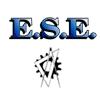Intestinal toxicity of deoxynivalenol is limited by Lactobacillus rhamnosus RC007 in pig jejunum explants
Author details:
1 Departamento de Microbiología e Inmunología, Universidad Nacional de Río Cuarto, Ruta 36 km.601, 5800, Río Cuarto, Córdoba, Argentina; 2 Consejo Nacional de Investigaciones Científicas y Tecnológicas (CONICET), Río Cuarto, Argentina; 3 Toxalim (Research Center in Food Toxicology), Université de Toulouse, INRA, ENVT, INP-Purpan, UPS, Toulouse, France.
Abstract
Probiotics have been explored to stimulate gut health in weaned pigs, when they started to consume solid diet where mycotoxins could be present. The aim of this study was to evaluate the effect of Lactobacillus rhamnosus RC007 on the intestinal toxicity of deoxynivalenol (DON) in an ex vivo model. Jejunal explants, obtained from 5-week-old crossbred castrated male piglets, were kept as control, exposed for 3 h to 10 μM DON, incubated for 4 h with 109 CFU/mL L. rhamnosus, or pre-incubated 1 h with 109 L. rhamnosus and exposed to DON. Histological lesions were observed, para- and transcellular intestinal permeability was measured in Ussing chambers. The expression levels of mRNA encoding six inflammatory cytokines (CCL20, IL-10, IL-1β, TNFα, IL-8 and IL-22) were determined by RT-PCR. The expressions of the phosphorylated MAP kinases p42/p44 and p38 were assessed by immunoblotting. Exposure to DON induced histological changes, significantly increased the expression of CCL20, IL-1β, TNFα, IL-8, IL-22 and IL-10, increased the intestinal paracellular permeability and activated MAP kinases. Incubation with L. rhamnosus alone did not have any significant effect. By contrast, the pre-incubation with L. rhamnosus reduced all the effects of DON: the histological alterations, the pro-inflammatory response, the paracellular permeability and the phosphorylation of MAP kinases. Of note, L. rhamnosus did not adsorb DON and only slightly degrade the toxin. In conclusion, L. rhamnosus RC007 is a promising probiotic which, included as feed additive, can decrease the intestinal toxicity of DON.
Keywords: Mycotoxin, Deoxynivalenol, Lactobacillus rhamnosus, Intestine, Toxicity.
Abstract published in Arch Toxicol 92, 983–993 (2018). https://doi.org/10.1007/s00204-017-2083-x.












